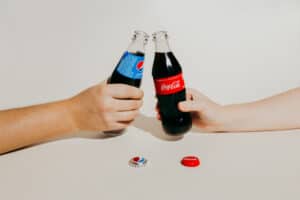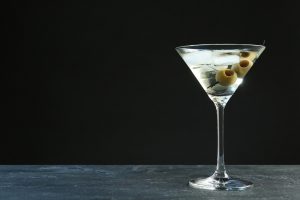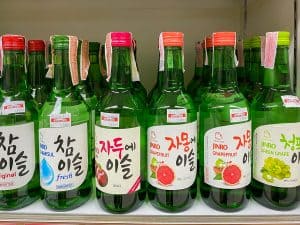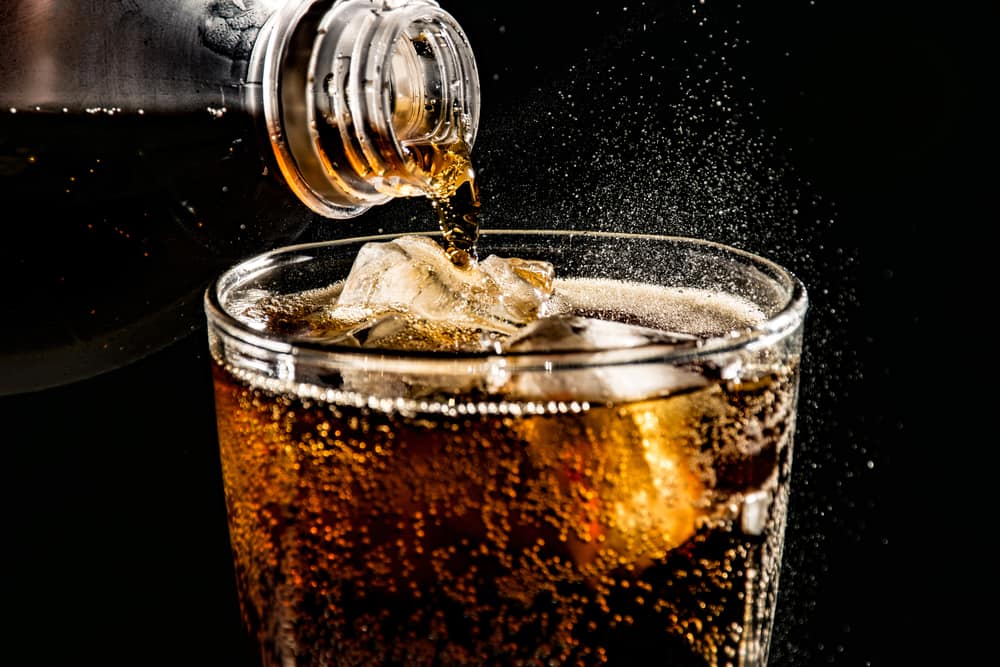
Carbon Dioxide (CO2) is the main reason behind fizzy flavor and the bubbling effect in carbonated drinks. CO2 is added to the drinks at high pressure and lower temperature (optimum conditions) to produce what we know as carbonated drinks.
Carbonated beverages are a mixture of liquid and gas; that is why the right conditions should meet for a drink to be carbonated and keep it that way. Now here comes the question, why should carbonated beverages be kept cold?
Carbonated drinks have heightened flavor at a cold temperature. The greater the amount of CO2 fizzier the beverage, and CO2 is best soluble in them at a lower temperature. That is why many people like to store them in the refrigerator and describe a room temperature one as bland.
Here we will discuss carbonation and how it works, how to store carbonated drinks and the health effects of carbonated beverages.
Carbonation and How It Works
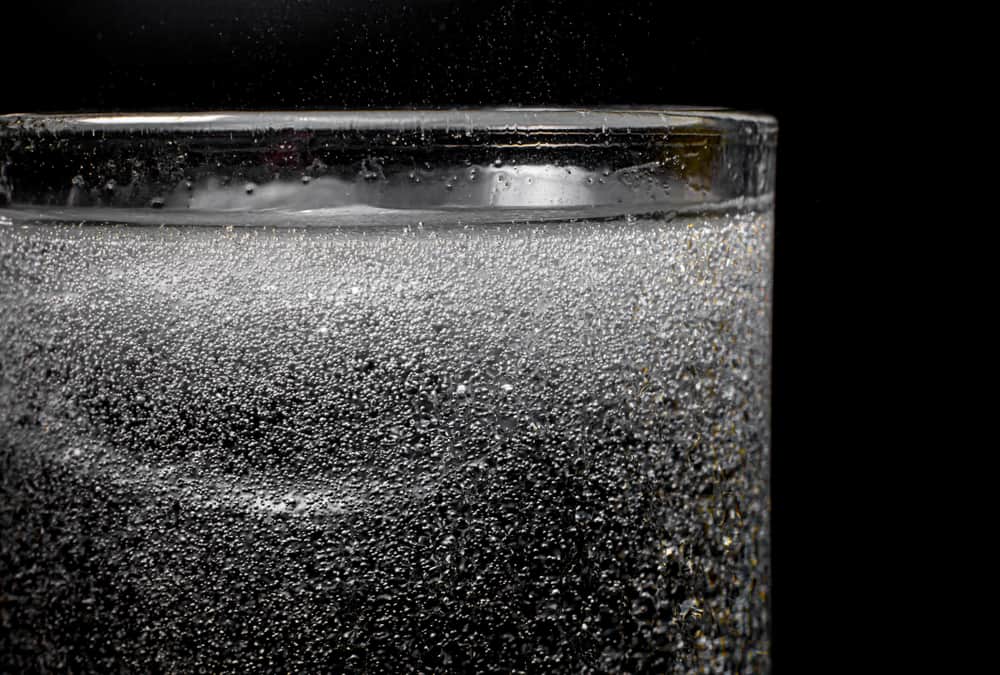
In layman’s terms, carbonation is dissolving carbon dioxide in the liquid, now onto the technical stuff.
Carbonation causes the production of carbonic acid, which happens when water and carbon dioxide come into contact to provide you with a fizzy tinge on the tongue.
You may have noticed some small void at the top in most carbonated beverages and wonder why they do not fill the bottle to the brim; that is because the gaseous CO2 takes up that space and exists in equilibrium with the acid formed. That is why, unless you shake the bottle, no bubbles are present in it.
When you open the can or bottle, bubbles pop up, and as the acid-forming reaction is reversible, it results in carbon dioxide escaping (a high-pressure area to a low-pressure area). It leaves your drink bland or otherwise flat.
The larger the opening, the quicker the loss; for example, a beverage in an open cup becomes bland faster, unlike a can/bottle.
Check out this short video to understand the working of carbonation.
Relation Between Carbonation and Temperature
So, what is the relation between carbonation and temperature? A colder drink holds more CO2 than a warmer drink, and carbonation has a reverse link with temperature, meaning higher temperature will result in less carbonation.
The liquid’s temperature in which the carbonation happens is also crucial. The beverage will be fizzier if the drink is cold when carbonation happens.
Check out the relation between gas solubility and temperature here.
Carbonated beverages, especially soda, are not tasty when drunk flat/warm; they can taste more like a flu syrup than a soft drink, so it is better to go for a cold one.
How To Store Carbonated Drinks?
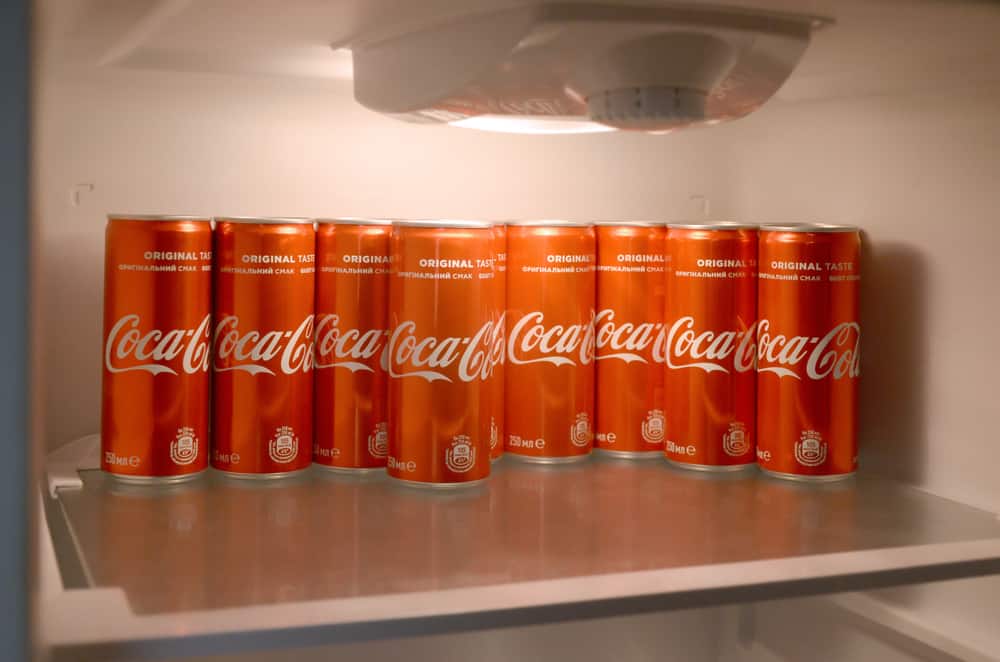
There are countless variations and methods to store a carbonated beverage, but it largely depends on whether the drink is opened/not. Storing and carbonation preservation differs based on that.
Opened Beverages
These beverages are tough to store because carbon dioxide tries to escape steadily to balance out inner and outer pressure differences. But even with alternative options, you can not maintain the fizz for more than three to four days.
Following are the two main methods:
Moving the drink to smaller containers: If you have a big bottle, try transferring the contents to a smaller bottle, preferably with a lid. It will keep the fizz longer than the bigger one.
Using lids: The most popular option for storing opened cans is using silicone or plastic covers. They ensure that your drink can stay air-tight, and storing it in the freezer extends its lifetime to four to five days, though it would not provide the same flavor.
Closed Beverages
The main factors you need to remember while storing these drinks are temperature, sunlight, and leaking/damage to the container. You can line them up in a cool dark cabinet in your kitchen or your room and enjoy their fizz anytime you feel the craving.
Check out the 3-30-300 rule followed for the storage of beers.
Health Effects of Carbonated Drinks

There are more adverse effects associated with carbonated beverages than positive effects, but the invention of carbonated water/sparkling water produced some positive results.
Positive Effects of Sparkling Water
Unlike most carbonated beverages sparkling water has some positive points, as it aids digestion and can contribute to weight loss by helping you feel satiated.
Also, people trying to quit energy drinks can benefit from changing their drinking habits to sparkling water.
Adverse Effects of Carbonated Drinks
There is a long list of health risks of carbonated drinks; some of them are as follows:
- Obesity: These beverages are sugar bombs, meaning more energy gain from sugars than the drink itself. It can lead to excess weight gain even with exercising, leading to obesity.
- Tooth Loss: Sugar is already damaging enough to your teeth, but these beverages contain chemical compounds that destroy the enamel tissue, causing cavities and tooth loss.
- Nutrition Imbalance and Diabetes: These drinks have high-calorie content, but contain less nutrition than your average food, meaning you can complete your calorie intake but lack other vitamins, resulting in nutritional imbalance.
Check out the American Diabetes Association article to understand the effect of nutritional imbalance and sugary drinks in causing diabetes.
Takeaway
The best temperature to drink a carbonated drink is 40°F, but the optimum temperature range to store them is 32-77°F. The main reason to keep carbonated beverages cold is to maintain their fizz for long and to enjoy their flavor at their best.
Carbon dioxide stays at the top empty portion in case of a lukewarm drink and quickly escapes into the atmosphere when the bottle is opened. So, storing carbonated beverages in the freezer or a cool place is highly recommended.
Frequently Asked Questions
Yes, you can carbonate warm water, but unlike cold water, it loses its carbonation quickly and becomes flat much earlier. So, it is best to go with cold water.
It is best to avoid freezing carbonated drinks, as they lose their fizz. Soft drinks do not freeze as quickly, and CO2 helps preserve the beverage removing the need to refrigerate, but these bubbles pop on freezing and leave your drink bland.

